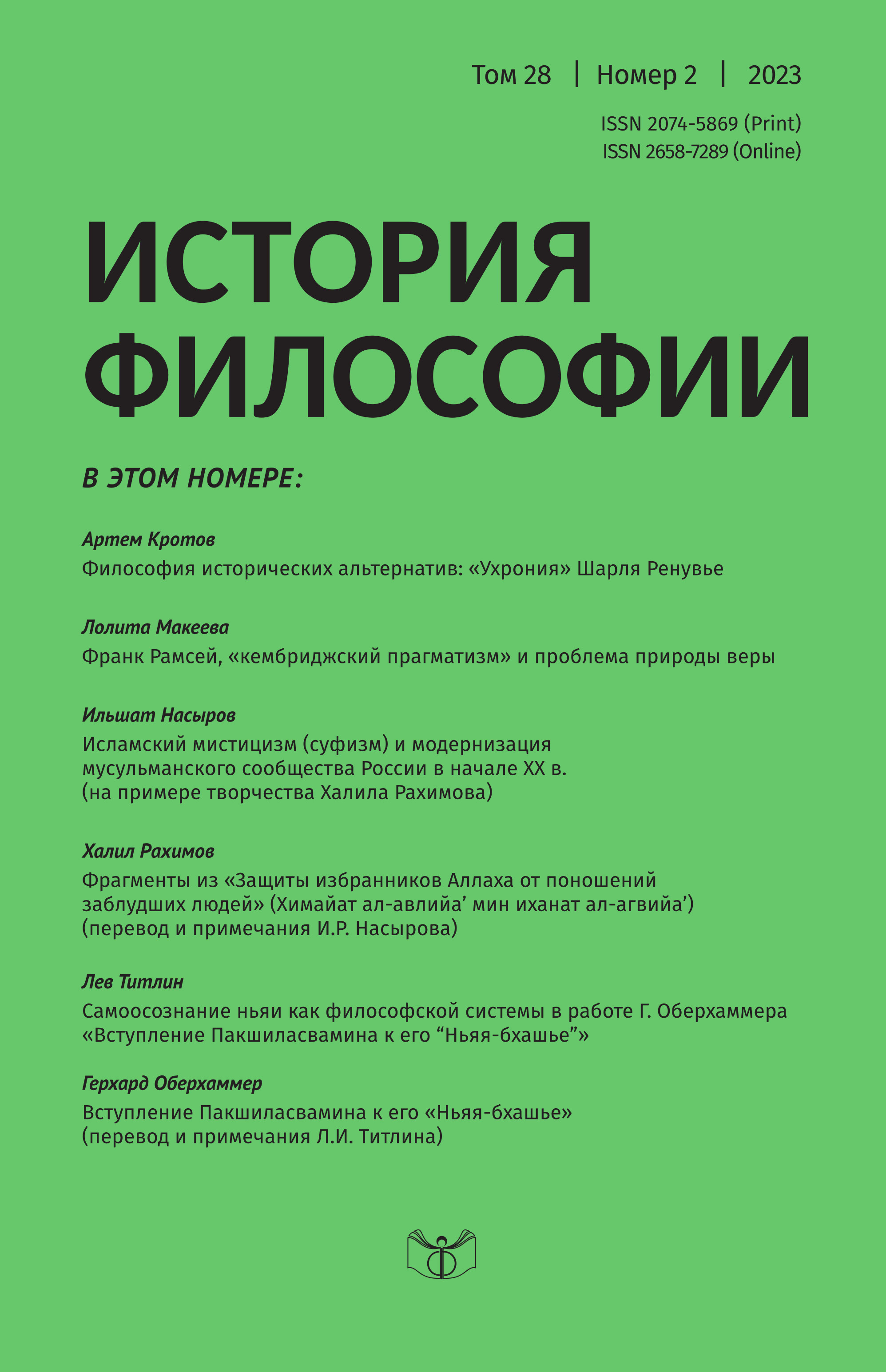Философско-религиозные идеи американского трансцендентализма в учении Свами Вивекананды
DOI:
https://doi.org/10.21146/10.21146/2074-5869-2023-28-2-47-59Ключевые слова:
индийская философия, Индийский Ренессанс, американский трансцендентализм, Свами Вивекананда, Рамакришна, Ральф Уолдо Эмерсон, Генри Дэвид Торо, неоведанта, пути богопостижения, йогаАннотация
В статье проводится сравнительный анализ философско-религиозных воззрений индийского мыслителя и общественного деятеля Свами Вивекананды и философов движения американского трансцендентализма. Автор делает акцент на осмыслении интеллектуалами различных аспектов Божественного. В качестве представителей американского трансцендентализма рассмотрены наиболее яркие фигуры этого движения, в работах которых выражены его основные положения – философы Ральф Уолдо Эмерсон, Дэвид Генри Торо и Уильям Эллери Чаннинг. В исследовании применяются герменевтический и историко-философский подходы. В итоге признается явное сходство многих положений в учениях мыслителей, обусловленное общими источниками формирования их воззрений. Одновременно со сходством выявляются существенные расхождения во взглядах западных и индийского философов. Они раскрываются в представлениях о божественности человека, о природе как метафизической силе, а также в вопросе о познании Бога. Делается вывод об адекватном осмыслении Вивеканандой трудов американских трансценденталистов и использовании философом их идей с целью ознакомления западного общества с разработанной им интерпретацией основ индийской культуры.

